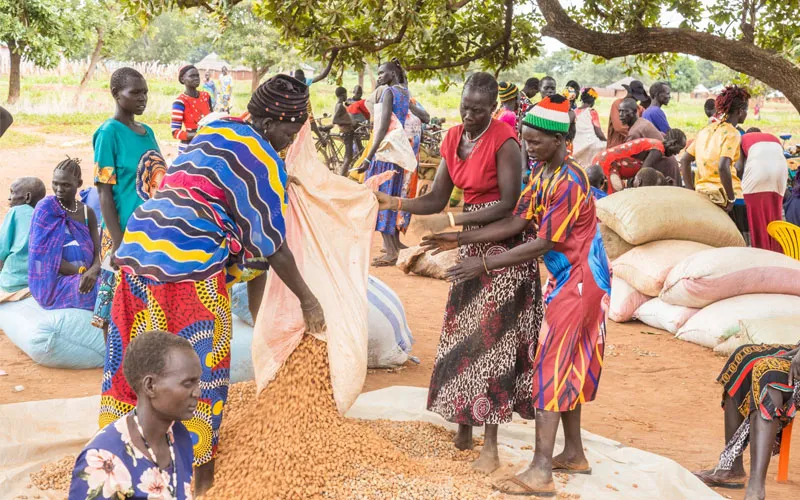“When the floods came, everything was submerged under water. I lost all my livelihood to the floods. All the food reserves that we had saved for years were destroyed. All the animals died and we had nothing to grow. The hunger kicked in," Ms. Nyangei is quoted as saying.
The Program Coordinator of the humanitarian arm of South Sudan’s Catholic Diocese of Rumbek is quoted warning that food insecurity is likely to increase this year.
“If people aren’t going to have a harvest in the next few months, people will starve because they will not have anything in their farms to feed their families,” the Program Coordinator of Caritas Rumbek, Peter Mamer Alam, says.
Mr. Mamer adds, “We are hoping that if everything goes well, and the rains start, people will cultivate other crops. But groundnuts and vegetable crops that were cultivated earlier, have been affected by the drought.”
The South Sudanese Caritas official says, in the November 15 Trócaire report, that “donor support is making a difference in the region and that families are receiving emergency food supplies as well as tools and seeds.”
(Story continues below)
Due to the hunger, Trócaire officials say that almost nine million people in South Sudan, representing about 80 percent of the population, are victims of the food crisis in the East-Central African nation.
In an effort to address the challenge of hunger in the world’s youngest nation, the November 15 report indicates that Trócaire is partnering other charitable agencies, including the Catholic Agency for Overseas Development (CAFOD), which is the official aid agency of the Catholic Church in England and Wales, to reach out to families through Caritas Rumbek.
“With funding from Irish Aid, Caritas Norway, UK Aid Match and the Climate Green Fund, some 30,000 people in the area have been supported with livelihood kits comprising of seeds and tools and emergency food aid,” Trócaire officials say in the November 15 report.
Silas Mwale Isenjia is a Kenyan journalist with a great zeal and interest for Catholic Church related communication. He holds a Bachelor’s Degree in Linguistics, Media and Communication from Moi University in Kenya. Silas has vast experience in the Media production industry. He currently works as a Journalist for ACI Africa.








